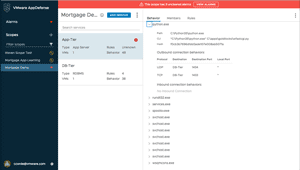In-Depth
Recapping VMworld 2017
The big news was partnerships with Amazon, a deeper dive into containers and an important security product.
To paraphrase Chuck Palahniuk, "All customers do is watch us and kill us when we get boring. We must never, ever be boring." Stable, reliable, and boring are not mutually exclusive. VMware must have taken note of this and, although nothing unexpected was announced at VMworld 2017, this year's show confirmed that VMware is not content to become boring and rest on its laurels, but continues to be a thought leader in the datacenter.
Let's break down and dive a little bit deeper in to the major announcements made this week and what they will mean to you and your datacenter.
VMware talked about many public cloud providers that they're partnering with. VMware cloud on AWS was the highlight of the opening general session and probably the biggest news of VMworld.
VMware Cloud on AWS
The initial release of VMware Cloud on AWS includes a fully-configured software-defined datacenter (SDDC) stack from VMware: vSphere, VSAN and NSX on a host in a AWS datacenter. The host is equivalent to an Amazon EC2 I3.16XL instance (2 sockets with 18 cores per socket, 512GB RAM and 13.8TB raw SSD storage).
You can start to use AWS with a minimum of 4 hosts, and maximum of 16 hosts, which are all controlled with a single instance of vCenter server. This is not a nested environment; this is VMware software running on AWS hardware. Using VMware cloud on AWS, you can connect your VMs to other AWS resources like EC2 instances, S3 storage, RDS databases and so on. This cluster can connect to your on-premises datacenter via two VMware NSX Edge virtual appliances, which provide security and gateway services.
This means you'll be able to easily and perhaps cost-effectively (prices are not yet public available) expand your datacenter to a leading provider of public cloud services, and use AWS services with minimal latency. VMware is betting that a sizable percentage of its customers like having control over their infrastructure software, but are tired of the hassle and expense of maintaining hardware on-premises.
Pivotal Container Service
The other big announcement around cloud partnerships was with Pivotal Container Service (PKS). PKS is not so much about the development of apps, but more about their day-to-day operation. It's about container orchestration with built-in high-availability, monitoring, automated health checks and all the other little nuances required to keep an app operational in a production environment.
these apps are cross-compatible between PKS and Google Container Engine (GKE), so you can move your workload to (and from) GKE. VMware knows that containerization of apps is hot and it needs to get in the container game; it also knows that people like to use the public cloud for deployment, enabling them to establish a hybrid on-premises/public cloud solution.
Enough about clouds; let's talk about what's new in traditional VMware software. VMware announced updates to NSX-T and VMware Integrated OpenStack (VIO), and released a new security product called AppDefense.
NSX-T 2.0 is the next generation of NSX-MH (Multi-Hypervisor). MH means it's compatible with non-vSphere platforms, including public cloud platforms. This allows VMware to extend its NSX networking constructs to other environments, allowing a flatter network topography regardless of source, process location or infrastructure.
VMware demonstrated its seriousness about OpenStack by announcing VIO 4.0, which is based on Ocata. It has support for containers, integration with vRealize Automation, and multiple vCenter servers.
AppDefense
VMware also introduced AppDefense. This is another layer of security for applications running on virtualized or cloud environments. It monitors and profiles applications, detects anomalies in a learned behavior, and can automatically respond to attacks against those applications. AppDefense is available now, at a cost of $500 per CPU per year for vSphere 6.5 customers.
 [Click on image for larger view.]
Figure 1. VMware's new AppDefense.
[Click on image for larger view.]
Figure 1. VMware's new AppDefense.
VMware is experiencing healthy financial growth, which is encouraging for a mature company in a maturing industry. With the announcements made at VMworld 2017, it looks like they will be anything but a boring company for the foreseeable future.
About the Author
Tom Fenton has a wealth of hands-on IT experience gained over the past 30 years in a variety of technologies, with the past 20 years focusing on virtualization and storage. He currently works as a Technical Marketing Manager for ControlUp. He previously worked at VMware in Staff and Senior level positions. He has also worked as a Senior Validation Engineer with The Taneja Group, where he headed the Validation Service Lab and was instrumental in starting up its vSphere Virtual Volumes practice. He's on X @vDoppler.